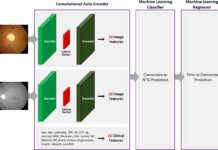Meningitis is an inflammation of the meninges, the membrane layers that cover the brain and the spinal cord. Although caused by different microbial organisms, the bacterial forms of meningitis, especially those caused by Neisseria Meningitides, are the most dangerous.
Although this bacteria is normally present in the nasopharynx of about 10% of adults without harm, its entrance into the bloodstream can cause severe symptoms like coma, which may progress to death in only 4 hours. It is also extremely contagious and is the only form of meningitis to cause an epidemic.
The bacteria’s aggressiveness has led to a concentrated effort from scientists to find a way to prevent it from infecting more people. This includes a team from the NIHR Southampton Biomedical Research Centre and the University of Southampton who has created a way to prevent Neisseria Meningitides infection by using another bacteria species.
Infesting the nose with friendly bacteria
The species in question is a similar type of bacteria called Neisseria Lactamica. It is also present in the normal environment of the nose and is non-threatening. In the natural system, these bacteria take up space so that Nmen cant adhere, as demonstrated in a previous study.
However, the goal for this research wasn’t merely to displace Nmen, it was to help build up immunity against it by using N.Lac as a “live vaccine vector”. The scientists genetically modified NLac so that it expressed Nmen’s Neisseria Adhesin A (NadA) protein which helped it adhere to cells in the nose. They called the modified species GM-Nlac which they then administered into 26 voluntary trial participants’ noses in the form of drops.
As a result, the vaccine not only produced a strong antibody response against the NadA protein, it also created IgG memory B cells which will help induce a quicker immune response if it encounters this antigen again.
According to the article published in Science Translational Medicine, “GM-Nlac can be deployed safely, survive in its biological niche, and be effectively eradicated as necessary without transmitting to other adults living in close proximity to the study participants.” This makes it an ideal carrier for the NadA protein.
The scientists also believe this technique has opened up new horizons in bioengineering.
Dr Jay Laver, Senior Research Fellow in Molecular Microbiology at the University of Southampton
“It is theoretically possible to express any antigen in our bacteria, which means we can potentially adapt them to combat a multitude of infections that enter the body through the upper respiratory tract. In addition to the delivery of vaccine antigens, advances in synthetic biology mean we might also use genetically modified bacteria to manufacture and deliver therapeutics molecules in the near future.”
Source: Science Alert
https://www.sciencealert.com/friendly-genetically-modified-bacteria-in-nose-drops-can-protect-against-meningitis




